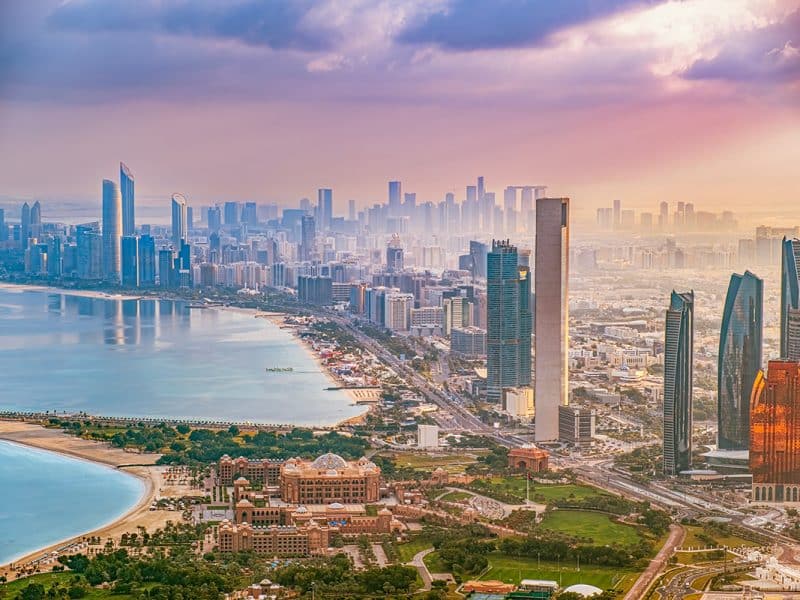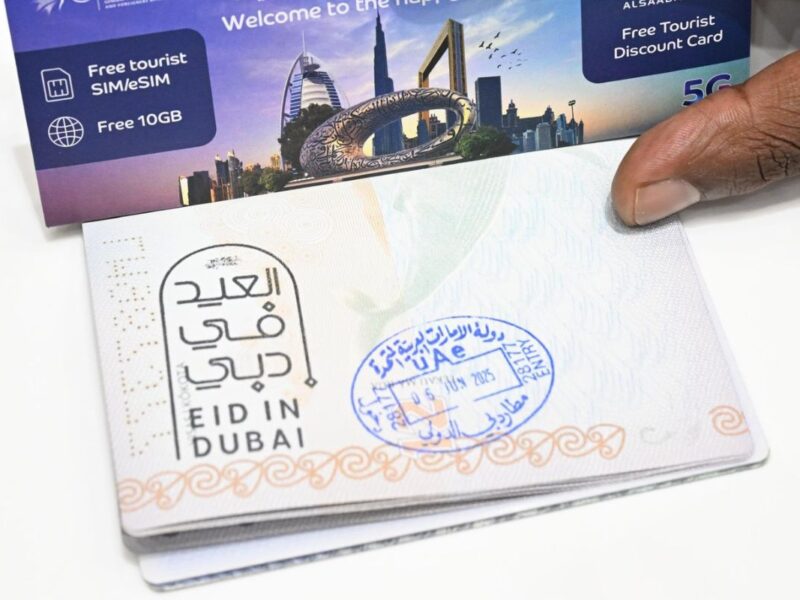Azizi Investments recently made its debut on the Dubai real estate scene. But there’s a lot more to this property developer than meets the eye, as Diana Milne finds out when she meets its founder Merwiss Azizi.
Interviewing Merwiss Azizi is an experience in itself. A softly spoken and unassuming looking man, he is in fact one of post-war Afghanistan’s most successful entrepreneurs, who drops his achievements casually into our conversation just like they are everyday occurrences.
“At the time president Bush started to make plans for war in Afghanistan, I started to make plans for businesses in Afghanistan,” he says.
When President Bush started to make plans for war in Afghanistan I started to make plans for business in Afghanistan.
Azizi Investments is another name in the growing list of companies hoping to make a quick billion or so from the UAE’s booming real estate market, having unveiled its 15 million sq ft property development portfolio in the country.
But dig a little deeper and there’s a lot more to this particular property developer than meets the eye.
For a start it is the first Afghan property developer to enter the UAE’s real estate market – an achievement itself given the economic turbulence in its own war-torn backyard.
Then there’s the founder of the company, Merwiss Azizi – one of the richest and most high-profile businessmen in his native Afghanistan, founder of one of the country’s first commercial banks Azizi Bank and a petroleum trader who supplies around 90% of Afghanistan’s oil supplies.
Despite having amassed a multimillion dollar fortune he claims: “Money is not important.
“For me the most important thing is that I can walk with my head held high but I am not ashamed of anything I’ve ever done in my life.
On the contrary, Azizi has a lot to be proud of, for he is no ordinary oil tycoon.
After fleeing the Soviet war in Afghanistan in 1987 with just US$700 in his pocket and the clothes he was wearing, he began dealing in textiles in Uzbekistan and quickly realised his own flare for the hard sell.
“I left with the suit I was wearing and US$700 and that was it. It started when I visited a friend in Bulgaria who was making textiles. I said to him ‘give me one container of textiles to sell’. He said ‘okay but come back with the money in one month’.
I sold the container in one day and made a profit of US$1,000. Next he gave me five containers to sell in two months.
I sold the containers in two days and made a profit of US$1,500 on each one. Then a lot of people began to say ‘Azizi is very good at selling these containers’. Some of them gave me five containers, some of them 10, 20 or 30 to sell at once.”
Azizi’s reputation soon spread and he claims that within six months, he had turned his US$700 into US$1m.
He quickly turned his selling talents to the cigarette business, trading Bulgarian cigarettes in Eastern Europe.
His business ambition was driven, he says, by a determination not to become dependent on state handouts and not to emigrate to Western Europe or to the US.
“When the Russians invaded Afghanistan I had a choice. I could either start a business close to home or I could emigrate. I graduated from the legal faculty of my university and none of my family was in business.
But I didn’t like the idea of going somewhere like Canada or the UK and relying on state allowances so I started my business.”
16 years after leaving Afghanistan, with millions of dollars in the bank and businesses spanning everything from petroleum and cigarettes to textiles, Azizi returned home – to find a country that had changed, he says, beyond all recognition.”The country was totally destroyed. That was my first reaction when I went back. The second impression was that the people had changed a lot.
Everyday during the years I had been away they had seen death, blood, murders and there was a serious shortage of medicine and food. In every family there were victims of war, and the people had become very scared and nervous.
So moved was he by his country’s plight that he set about using his millions to inject new life into the country’s economy.
Young people are the future of Afghanistan. My message to them is ‘make sure this country does not turn into a war zone again.
Azizi set up a petroleum business there and has opened 15 filling stations to date, a number that will reach 60 by the end of the year, he set up 34 branches of the Azizi Bank and launched the Azizi Foundation, which sponsors Afghans to study abroad.
The latter is a cause that is particularly close to his heart, as he believes that educating the next generation of Afghans and providing them with the skills required to rebuild the country is the only way to get Afghanistan back on its feet.
“At the moment we are facing big problems because of shortages of IT, finance and medical specialists.
“I send students to get their education abroad so when they come back to Afghanistan they will improve the life of the country. Young people are the future of Afghanistan. They have the power to change it. It’s in their hands.
“My message to them is ‘please work hard and make sure this country does not turn into a war zone again’.
He is also passionate about the impact the setting up of Azizi Bank, which currently has 180,000 customers, has had on the country – providing jobs for thousands of Afghans, including women, who under the Taliban rule were forbidden to work.
“We have developed a training centre for people who want to work in the banks and we’re training thousands of Afghans. Of the 1,000 employees of the bank, 400 of them are women and 11 of the 15 branch managers are women.
“This is an important development. Before women were not even allowed to go to school.
Azizi is keen to point out that his latest business venture, Azizi Investments in Dubai, does not mean his work in Afghanistan is finished.
In the pipeline is a US$400m project to build 350 petrol filling stations across the country and he has recently pledged to fund the construction of four buildings containing 50 classrooms in the American University in Kabul.
However, he says, that having lived in Dubai for the past 16 years – describing the emirate as his “second motherland” – it is time to stake his claim in the booming UAE real estate market.
The company has already announced projects to develop 12 plots of land within Nakheel’s Al Furjan development, to develop a five-star hotel within Emirates City in the emirate of Ajman and to develop 850,000 sq ft of land on the Palm Jebel Ali in Dubai.
It plans to acquire and develop an estimated 15 million sq ft worth of land by the end of the year, and by 2010 to have acquired 165 million sq ft.
It’s not unusual for new property developers to burst onto the scene quoting such aggressive targets.
But given Azizi’s track record, and his approach to business, it will probably happen. “When I start something I will do it until the end,” he says.
“Even if it’s difficult and I’m feeling tired I won’t stop until I’ve hit my target.
“If I have a challenge and an objective I won’t give in.







